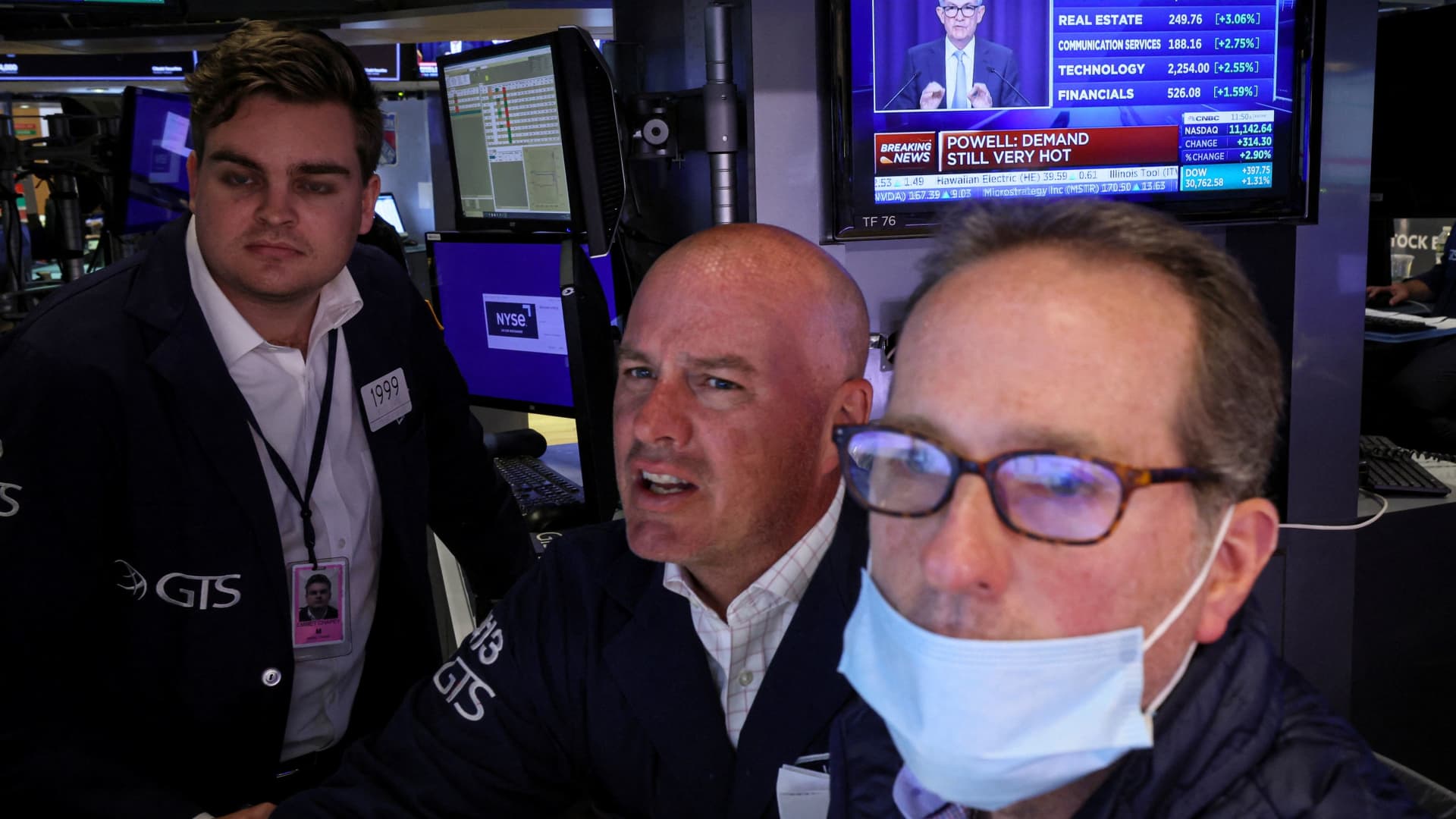
A preoccupation with peak hawkishness from central banks is jumping the gun, according to Jean-Paul Jaegers, head of asset allocation at Barclays Wealth & Investments.
Major central banks throughout the world have been tightening monetary policy and raising interest rates in a bid to contain runaway inflation in recent months.
However, some stock markets staged a mild relief rally last week on hopes that the substantial rate hikes already implemented would mark the peak of policymakers’ aggressive tightening, as they walk a tightrope between inflation containment and a backdrop of slowing growth in many major economies.
When asked if the market had a “dangerous preoccupation about peak hawkishness” – or when central banks pause on hiking rates – Jaegers said: “Yes, it probably is. We actually think, reading the economic data recently, I think it’s probably too early.”
European markets were mixed Monday and stock futures stateside nudged into cautiously positive territory as investors geared up for a deluge of corporate earnings and looked ahead to the Fed’s monetary policy decision Wednesday.
However, Jaegers predicted that it may be months before central banks are comfortable enough with the trajectory of inflation to take their foot off the pedal of monetary policy tightening.
“We do see now, as investors, talking for a long time on the stagflation scenario, so activity is slowing and inflation is actually quite sticky. We do see that inflation remains actually quite stubborn and more entrenched in some elements,” he told CNBC’s “Squawk Box Europe” on Monday.
“We think they [central bankers] will need some time for inflation to really come off, and be comfortable to let their foot off the pedal … that will require quite some months when they will be comfortable enough with inflation.”
For financial markets, however, that eventual pivot may provide an opportunity, he suggested.
“Especially what we’ve seen with equity markets, and particularly fixed income markets and credit so far year-to-date, the drawdowns have been quite significant, so I think there will be some relief in investors if they think that inflation has been stemmed to some extent,” Jaegers said.
The European Central Bank became the latest to begin its tightening cycle, surprising markets on Thursday with a larger-than-expected 50 basis point hike to interest rates, with euro zone inflation running at a record-high 8.6%.
However, the continent faces multiple external shocks that are weighing on growth, most notably the war in Ukraine and associated energy supply concerns, along with renewed political turmoil in Italy.
“The economic backdrop for Europe has been deteriorating quite a bit and then also the clouds with Italy and a war on its doorstep makes it a very complicated picture for Europe,” Jaegers said.
“We actually think that Europe is heading into a recession and the ECB will find, probably, that it’s very hard to lift policy rates sufficiently in the face of slowing economic growth.”
The U.S. Federal Reserve is expected this week to opt for a second successive 75 basis point hike, with inflation running at 9.1%. However, PMI readings and job figures out of the U.S. last week also signaled a slowdown in economic activity.
Jaegers also voiced concern about recession risks in the U.S., as interest rates — which started the year at 0-0.25% are now expected to hit 3.5% by the end of the cycle — in conjunction with a very strong dollar and other tightening financial conditions.
“So we became more cautious on these assets in recent weeks and more comfortable owning more duration risk, so more government bonds, in client portfolios. We think it’s very hard from here for long-term interest rates to really get higher, and that also accounts for Europe,” Jaegers said.




